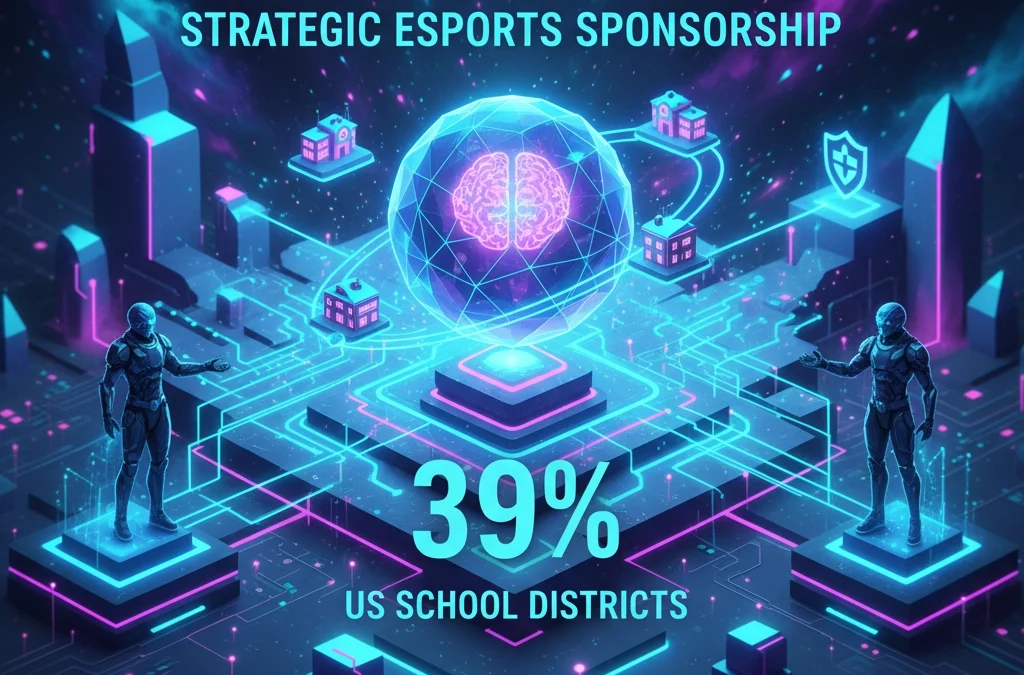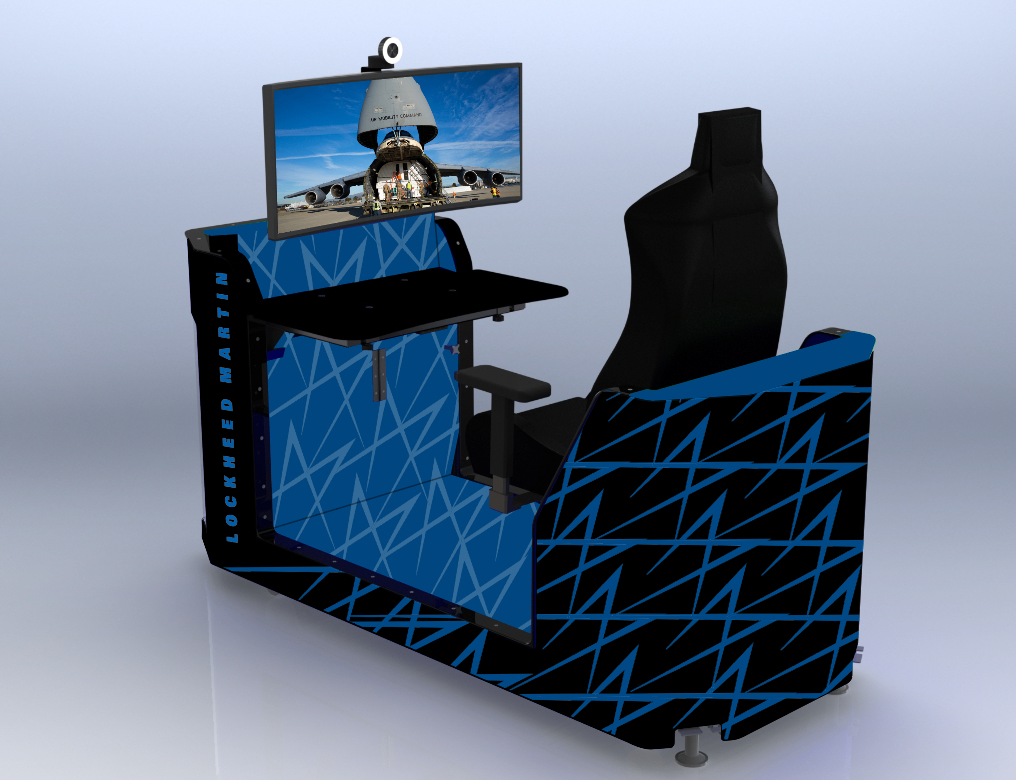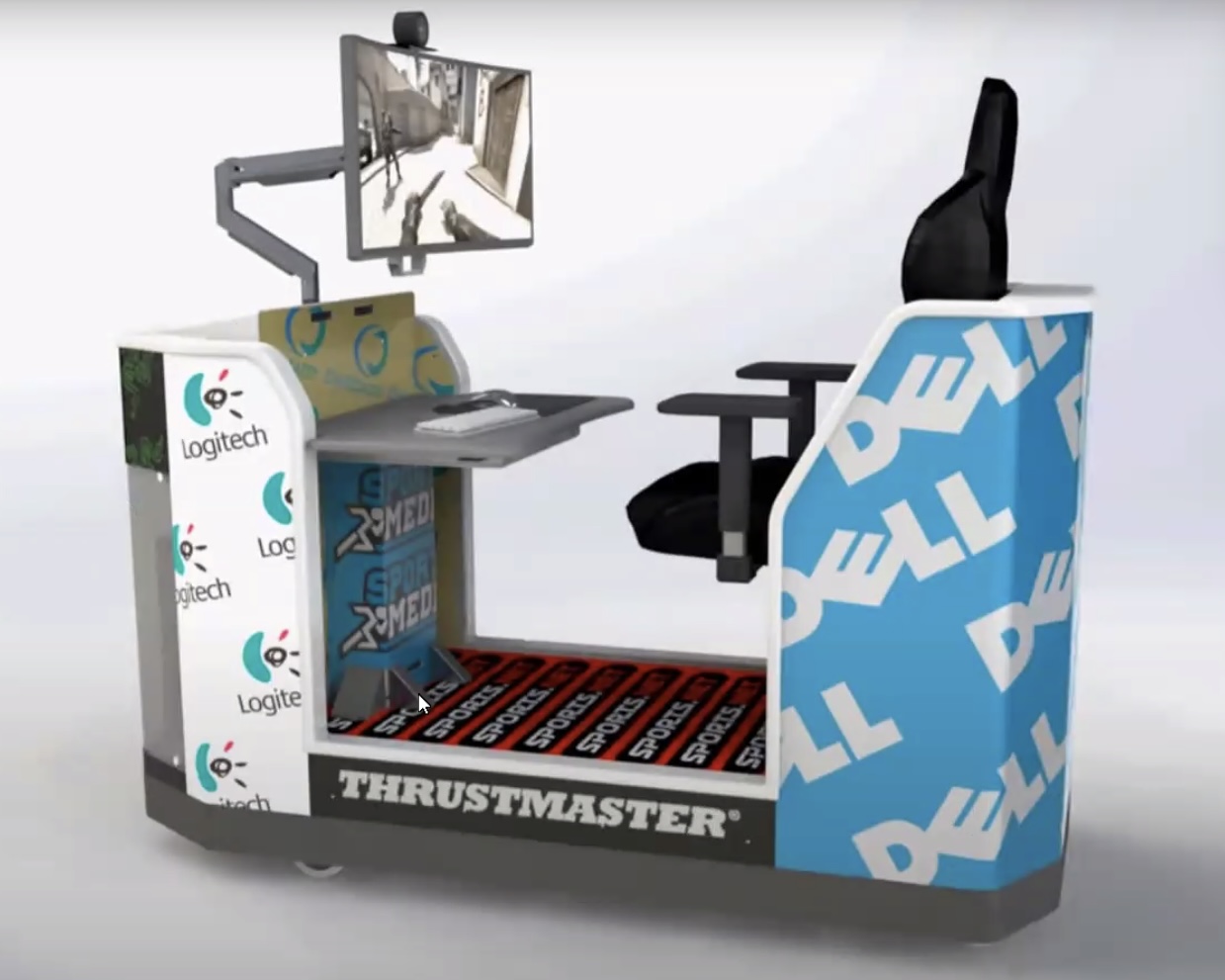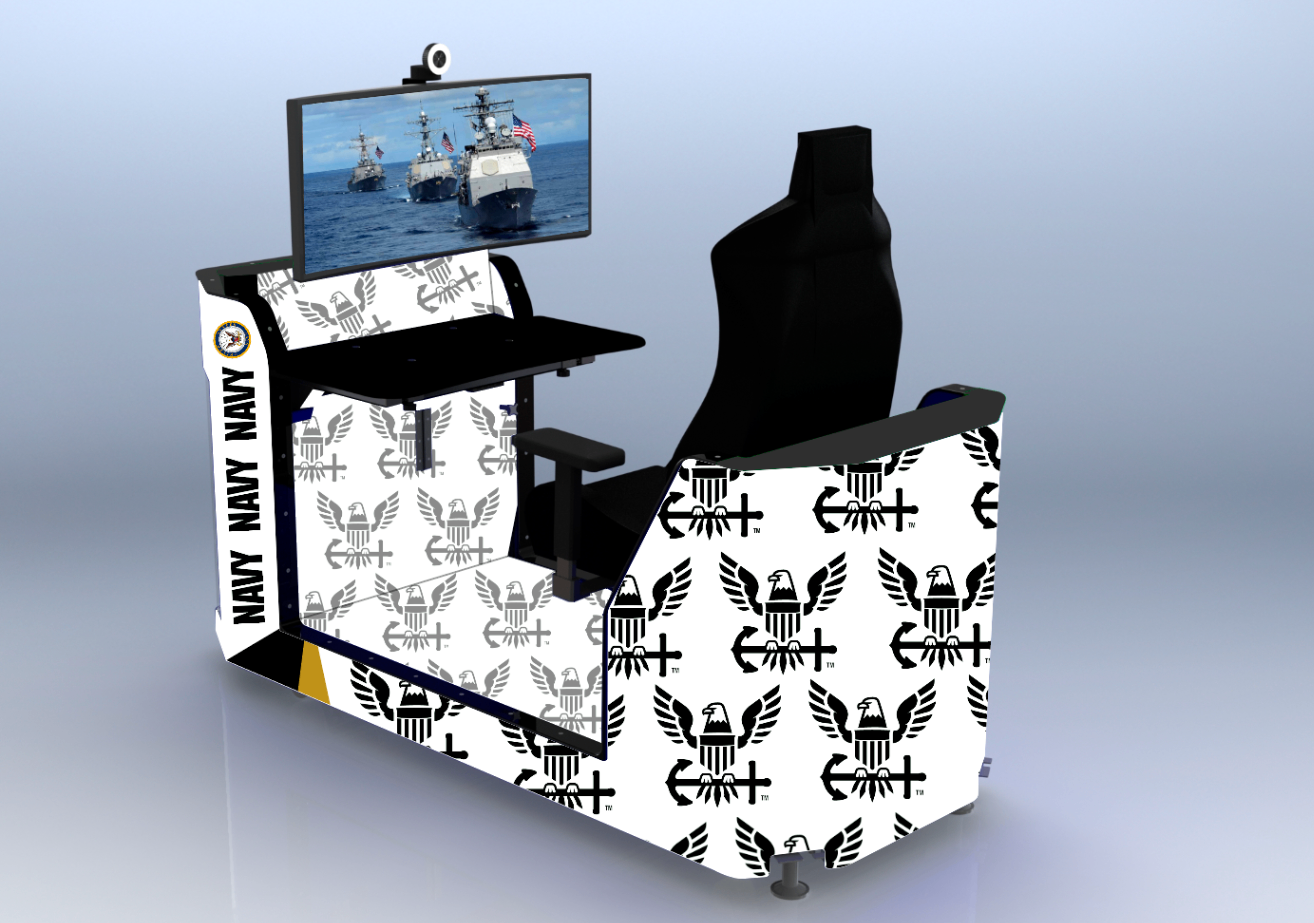The esports education market represents one of today's most compelling corporate partnership opportunities. With 39% of U.S. school districts now operating active esports initiatives, forward-thinking executives have unprecedented access to engaged student populations, innovative educational programs, and measurable brand impact. This comprehensive guide reveals how Fortune 5000 companies can strategically penetrate this rapidly expanding market through targeted sponsorship investments.
The Scale of Opportunity: Understanding the $24 Million Education Esports Market
The scholastic esports landscape has transformed from experimental programs to mainstream educational infrastructure. Over 240 colleges now offer varsity esports programs as of 2025, representing a 37% increase since 2022. High school participation has doubled since 2020, reaching 200,000+ registered student athletes in 2024.
This growth extends beyond traditional high school demographics. Districts increasingly recognize esports as legitimate competitive pathways, creating junior varsity pipelines in middle schools to develop teamwork, strategic thinking, and social-emotional skills. Educational institutions awarded more than $24 million in scholarship money to student esports athletes in 2024, establishing clear career advancement opportunities that resonate with students and parents alike.
The financial commitment from schools signals serious institutional buy-in. Districts invest tens of thousands of dollars building dedicated esports arenas complete with professional-grade equipment, streaming capabilities, and broadcast facilities. Modesto school district exemplifies this trend, utilizing pandemic-era funding to purchase Lenovo Legion gaming PCs, peripherals, shoutcasting equipment, and Nintendo Switch consoles across all grade levels.
Strategic Advantages of Esports Sponsorship for Corporate Partners
Precision Targeting with Homogenous Audiences
Unlike traditional advertising that casts wide nets hoping to capture relevant prospects, esports sponsorship delivers targeted reach through highly engaged, homogenous audience segments. Companies can concentrate resources on specific demographic niches sharing similar interests, lifestyles, and purchasing behaviors. This precision targeting often generates higher ROI than broader marketing campaigns because sponsors connect directly with audiences most likely to convert.
The demographic profile includes digitally native students representing tomorrow's consumers and decision-makers. Female participation in scholastic esports has increased to 18%, up from just 11% in 2021, indicating expanding diversity and broader market opportunities for brands seeking authentic connections with emerging consumer segments.
Long-Term Brand Loyalty Development
Corporate partnerships with educational esports programs create sustained engagement opportunities impossible through traditional advertising channels. Students interact with sponsored equipment, curriculum, and programs daily throughout academic years, building deep brand familiarity and positive associations that extend well beyond graduation.
Implementation Framework: Strategic Partnership Models
Equipment and Infrastructure Partnerships
Direct equipment partnerships represent the most impactful entry strategy for technology companies and hardware manufacturers. Schools require comprehensive gaming setups including high-performance PCs, specialized peripherals, streaming equipment, and network infrastructure upgrades. Strategic partners can provide complete solutions while establishing long-term service relationships.
Consider comprehensive packages encompassing:
- Professional gaming workstations and peripherals
- Broadcasting and streaming production equipment
- Network infrastructure optimization
- Facility design consultation and construction support
- Ongoing technical support and equipment refresh programs
Curriculum Integration and Educational Content
Schools increasingly incorporate esports into academic curricula, creating electives in esports management, video game design, and digital media production. Students analyze game physics for science credit, learn business concepts through team marketing and sponsorship management, and develop technical skills through broadcast production.
This trend presents opportunities for companies to sponsor educational content development, provide real-world case studies, offer internship programs, and create direct pathways from classroom learning to professional opportunities. Esports job placement rates exceed 78% in media, marketing, and event production, making these partnerships valuable for both students and sponsoring companies.
Scholarship and Grant Program Leadership
Educational institutions recognize esports talent through substantial scholarship investments. Corporate-sponsored scholarship programs generate significant community goodwill while supporting talent development that benefits entire industries. The Varsity Esports Foundation already makes grants to schools and districts to build physical capacity, demonstrating established infrastructure for expanded corporate involvement.
Industry-Specific Sponsorship Strategies
Current sponsorship investment patterns reveal strategic opportunities across multiple sectors. Consumer goods companies lead esports sponsorship with 21.80% of total investment, followed by technology companies at 15.90%. Clothing brands contribute 13.35%, beverage companies 4.75%, and financial services 4.65%.
Technology Sector Natural Advantages
Technology companies enjoy natural product alignment with esports programs. Hardware manufacturers can provide gaming workstations, networking equipment, and peripheral devices while establishing long-term service relationships. Software companies can offer specialized applications, cloud services, and technical training programs that connect directly to career pathways in game development, system administration, and digital media production.
Consumer Goods and Retail Positioning
Brands can leverage the homogenous lifestyle characteristics of esports audiences for targeted product placement and integrated marketing campaigns. Consider partnerships extending beyond traditional sponsorship into product development specifically for gaming education markets, exclusive merchandise programs, and lifestyle brand positioning within school communities.
Addressing Market Challenges Through Strategic Positioning
Equity and Access Differentiation
Not every school district can afford comprehensive esports programs, creating risks that wealthier districts will advance while under-resourced schools fall behind. Smart sponsors can differentiate themselves by specifically targeting underserved districts through grant programs and equipment donations, building brand loyalty in emerging markets while addressing corporate social responsibility goals.
Nonprofit Partnership Leverage
Organizations like Generation Esports host competitive leagues and develop standardized curricula while corporate sponsors provide hardware for schools lacking adequate funding. Partnering with established nonprofit organizations accelerates market entry while providing credible distribution channels and community trust.
Performance Measurement and ROI Optimization
The National High School Esports League achieved a record 83% renewal rate from participating schools in 2024, indicating exceptional engagement levels and program satisfaction. Successful sponsors track performance through comprehensive metrics including:
- School program retention and expansion rates
- Student participation growth and demographic expansion
- Brand awareness metrics within target demographics
- Lead generation from educational partnerships and events
- Long-term customer acquisition from brand-loyal student populations
- Community engagement through social media and competitive events
Strategic Implementation Recommendations
Initiate with targeted pilot programs focusing on districts already demonstrating commitment through equipment investments and dedicated facility development. Prioritize comprehensive partnerships extending beyond simple logo placement to include curriculum integration, educator professional development, and structured career pathway programs.
Leverage the targeted reach advantages inherent in esports by developing sponsorship packages tailored to specific game communities, age groups, and geographic regions rather than generic approaches. Build sustained relationships with educational institutions recognizing that today's middle school participants represent tomorrow's consumers, employees, and industry leaders.
The 39% of districts with active esports initiatives represents approximately 5,000-6,000 school districts nationwide, creating substantial addressable markets for strategic sponsors willing to invest in comprehensive, education-focused partnerships. Companies ready to move beyond traditional advertising toward meaningful educational collaboration will capture significant competitive advantages in this rapidly expanding market.
Ready to explore strategic esports sponsorship opportunities? Contact EsportsPod today to discover how your company can build lasting relationships with tomorrow's consumers while supporting innovative education programs transforming student experiences nationwide.




